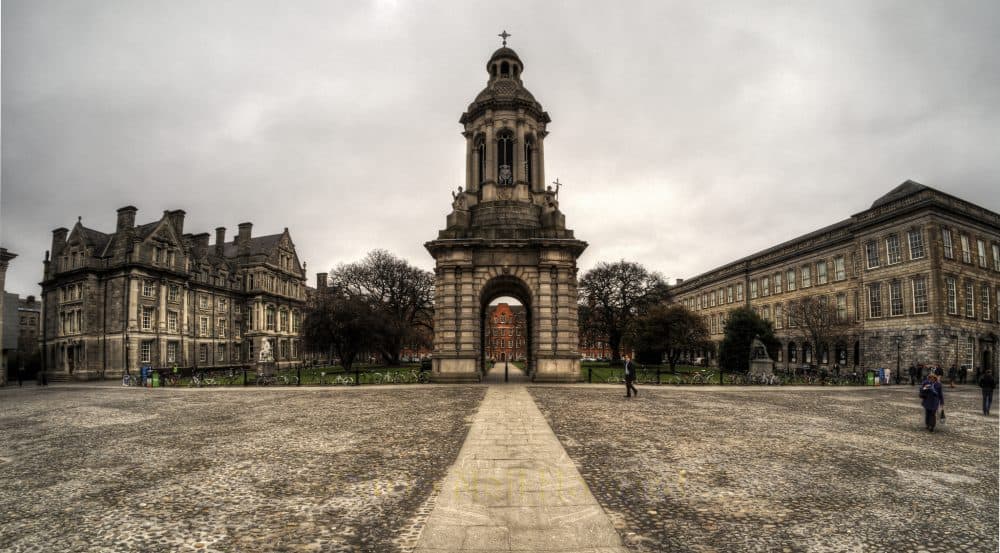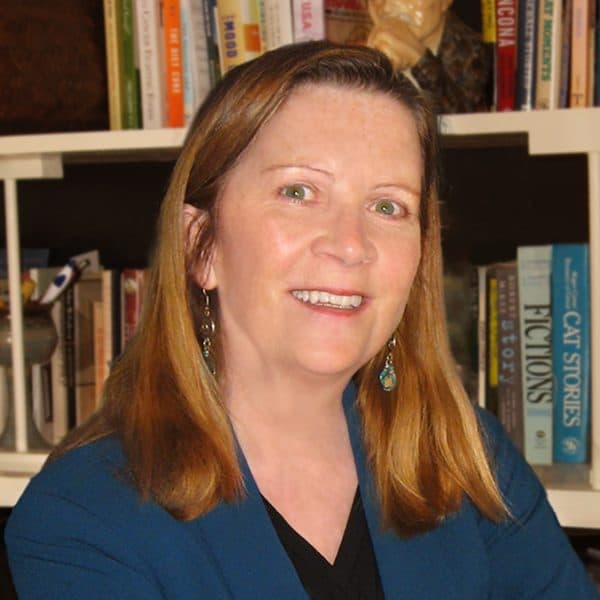Advertisement
Commentary
Note To Former Self: You're Way Too Young For College

A friend recently wrote to tell me that her 18-year-old daughter is down to two final college choices, and that the decision must be made and the deposit paid within a week.
I’ve known this kid since she was born. Her mother and I have been close friends for over 32 years and I’ve watched this girl mature into a smart, funny and responsible young woman.
So I wrote back to assure my friend that whatever school her daughter chooses, I know that she'll make the best choice and that she'll thrive.
There have been parents in my extended circle to whom I could not say this. Long before the grown-ups and their college-bound kids went shopping for dormitory gadgets, I had a feeling that the transition to college was going to be challenging at best, a disaster at worst.
I'm not a parent. And, though some of my parenting friends would disagree, my non-membership in the parent-college-applications club gives me a certain objectivity — enough to hear those warning bells.
Some of us are never dumber and never smarter than during those late teen and early 20s years.
What’s most worrying to me when I look at 17- or 18-year-olds heading off to college is the kid’s emotional age. I know of which I speak here. If I could time travel backward to my own pre-college years, this is what I would scream at my young self: "STOP! For the love of Karma or the gods, take some time out to grow up."
I started at my Dublin college the day after my 17th birthday, when I didn’t have the smarts to know or the humility to admit that I was way, way too young for college. I also didn't and couldn’t know that I was making a huge mistake — the kind of blooper that would cast a long shadow over my academic, personal and professional life.
It was an avoidable mistake. A year earlier, just before I started my final year, my school principal told my mother that I should repeat my fourth (junior) year. Yes, my grades were very good, but I was a year plus younger than all my classmates and, therefore, immature.
Of course, this proposal was appalling to 16-year-old me. How would I ever live down the shame of having to stay back an entire year? I pouted. I switched to the silent treatment. In the end, my mother caved and I moved on with my classes and college applications.
Back then, my mother didn’t know what the neuroscientists would later tell us about the still-developing teenage brain. At 16, 17 and 18, the teenage brain isn't wired to make the most prudent decisions. Or, as my grandmother was fond of saying, “You can’t put an old head on young shoulders.”
Of course, teenage impetuosity isn’t all down to brain circuitry, but biology plays a nasty trick on teenagers: Just when our young brains are most wired to flunk the common sense tests, those same brains are at their highest capacity for learning. In other words, some of us are never dumber and never smarter than during those late teen and early 20s years.
In college, I struggled to make deadlines and follow a schedule. Too many mornings, I switched off the alarm rather than trek to a lecture hall where, for the first time in my life, no adult was watching.
I didn’t appreciate or use the privileges I had. Every morning, I stepped off a Dublin city bus to walk past an old house with an exterior wall plaque that said the Joyce family — as in James Joyce — once lived in that house. Twice a week, I sat in a lecture with our English department head Seamus Heaney — as in the future Nobel Laureate. In my French class, we were coached by a group of dedicated and articulate professors — all of them from Paris.
In my daft young mind, I reasoned that I had no time for literary giants or linguists when there were friends to be made, papers to be fudged and (underage) partying to be done.
I loved college. I would have stayed forever. But when I see myself back there now, I am the not-yet-house-trained puppy who ran about begging for a pat on the head from the cool crowd.

A year ago, I found myself at an event with two male associates, both American college professors. Over our dinner entrees, the three of us reminisced on our undergraduate party days. The guys howled at my stories from my madcap Dublin college escapades — including my habit of hitchhiking to save on city bus fares.
One of my dinner companions said: “Look, we all have things from our college years that we regret. But the important thing is that we had fun and survived.”
But that’s the thing, I wanted to tell that man. For us women, the fallout from the short-circuited teenage brain is more long term.
The female make-up test is always going to be that much harder, not least because of gender-based wage inequities. According to Pew Research Center, in 2015, women’s median hourly wage was 83 percent that of our male counterparts. This represents a 20 percent rise from 1980, when women earned 67 percent of what men earned.
In 2017 America, the gender-based wage gap has narrowed, but for those of us who started, stalled and then re-started our careers in the late '80s and '90s, there's little or no chance to recoup those lost earnings or advancements.
Also, despite our growing educational and pay equities, we women are still almost three times more likely than our male spouses or partners to pause or stymie our careers in order to take care of children or older relatives.
My post-college make-up test eventually unraveled. By my 22nd birthday, I had a job and a car loan and a group of singleton roommates — including my friend whose daughter is about to make her final college choice. And here's the secret I kept from my new peers: I was perpetually overwhelmed, often insomniac and prone to episodes of mild or moderate depression. At age 24, I packed a bag and emigrated to America, where, for the first 10 years, I was still faking the grown-up stuff.
It's an issue that parents of college-bound kids rarely talk about: Our children’s academic grades, awards and college acceptance letters are one thing, but their street smarts and life skills are another. Depending on your child’s age and actual maturity level, the fast track to college is not always the best track.
Given the long-term payout for your teen, and given the increasing social acceptance (thank you, Malia Obama) of taking a gap year between high school and college, it’s worth researching what’s out there and affordable. I really wish I had.
